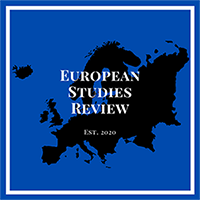by Simone Gagliardo
On March 7-8, 2023, thousands of demonstrators gathered in front of the Georgian parliament in Tbilisi to protest against a proposed “Law on Transparency of Foreign Influence”, which would require media outlets and NGOs receiving more than 20% of their revenues from abroad to register as “foreign agents” and be subject to closer monitoring and possible sanctions. This move –mirroring a similar Russian law– would have significantly threatened the freedom of speech in Georgia, as most civil society associations largely depend on foreign funds. On March 10, the ruling party, Georgian Dream, announced the withdrawal of the proposed legislation while the parliament voted down the bill. The success of street protests managed to thwart a project that risked derailing Georgia’s objective of joining the EU, as pointed out by Josep Borrell, the High Representative of the Union for Foreign Affairs and Security Policy. Nevertheless, the path to EU candidate status still appears tortuous, as both Tbilisi and Brussels will have to uphold their commitments in the upcoming months.
Recent Developments in EU-Georgia Relations
On March 3, 2022, in the wake of the Russian invasion of Ukraine, Georgia applied for EU membership. Although the government had initially decided to postpone the application to 2024, the pressure from street demonstrations and public opinion forced Georgian Dream to follow Ukraine’s and Moldova’s applications. However, while Kyiv and Chișinău were granted candidate status on June 23, Tbilisi was only promised a European perspective once it had fulfilled the 12 priorities outlined by the European Commission. Although some politicians underlined the unprecedented milestone reached by the country, most Georgians met the EU’s decision with frustration and disappointment. In response, the executive promised to carry out the required reforms before the next Commission’s assessment, as the Georgian president recognised that the country “does not have the luxury of receiving a second rejection.”
The Slide Toward Authoritarianism
For decision-makers at the EU-level, the situation in Georgia presents a clear paradox. On the one hand, the country’s economy is growing rapidly, and the government holds an impressive implementation record of the EU-Georgia Association Agreement and the Deep and Comprehensive Free Trade Area (DCFTA). On the other hand, Georgia’s democratic status appears to have deteriorated in recent years and its politics shows clear signs of state capture. Since coming to power in 2012, Georgian Dream has extended its power in all branches of government –although previous executives have not been exempt from misconduct either. It has undermined the rule of law by politicising judicial appointments, while oligarchic influence has affected the country’s political affairs. Vote rigging is not uncommon, and opposition leaders and journalists that are critical of the executive are often detained –see the jailing of former president Saakashvili, which was condemned by the European Parliament. Independent media and civil society are the main targets of the government’s erosion of pluralism, of which the “foreign agent” law is only the latest example.
Above all, it is the rhetoric and positioning of Georgian Dream that is at odds with the country’s EU aspirations. Despite being formally committed to the EU membership goal, the party has expressed a very soft stance towards Russia, although Moscow has de facto occupied 20% of its territory since the 2008 Russo-Georgian war. In particular, since the outbreak of the Russian invasion of Ukraine, Georgian Dream has adopted a rather frosty stance towards Ukraine, appearing reluctant to support Western sanctions and provide aid to Kyiv. A recent discourse analysis conducted by OC Media has even shown how Georgian party officials have been more critical of Ukraine and the West than of Putin and Russia. According to several observers, the equivocal attitude of Georgian Dream towards Moscow is due to Bidzina Ivanishvili, an oligarch with Russian ties, founder of the party, and shadow ruler within the political formation.
Georgia’s European Future
Nevertheless, Georgian Dream’s ambivalence seems in clear contrast with the country’s public opinion, as 83% of the Georgian citizens appear to favour the EU integration process. The diverging goals of the executive and the Georgian people have been the main cause of the country’s recent crises –see the “foreign agent” law– and risk exacerbating tensions in society. If Georgian Dream wants to keep the country united and gain consensus, it should no longer self-sabotage its reputation and national interest and start implementing the 12 recommendations demanded by the EU –first and foremost, the “de-oligarchisation” process. When the European Commission presents its annual Enlargement Package in autumn, the Georgian government must have at least a clear roadmap for full implementation. In parallel, the EU should be equally resolute in its relations with the country. It should not greenlight Georgia’s candidate status unless clear steps towards deeper democratisation are taken, while at the same time, it should avoid making its 12 priorities a moving target. The road ahead is still long and winding. However, what is clear is that the success of the recent protests has proven crucial in preventing the derailment of the government’s reforms and might ultimately have put the country on the right track toward enlargement.
Simone Gagliardo is a double-degree MA student in European Studies and International Relations at the LUISS University in Rome and the University of Salzburg. He holds a BA in Political Science from the University of Bologna, and his articles are regularly featured in European Studies Review.

